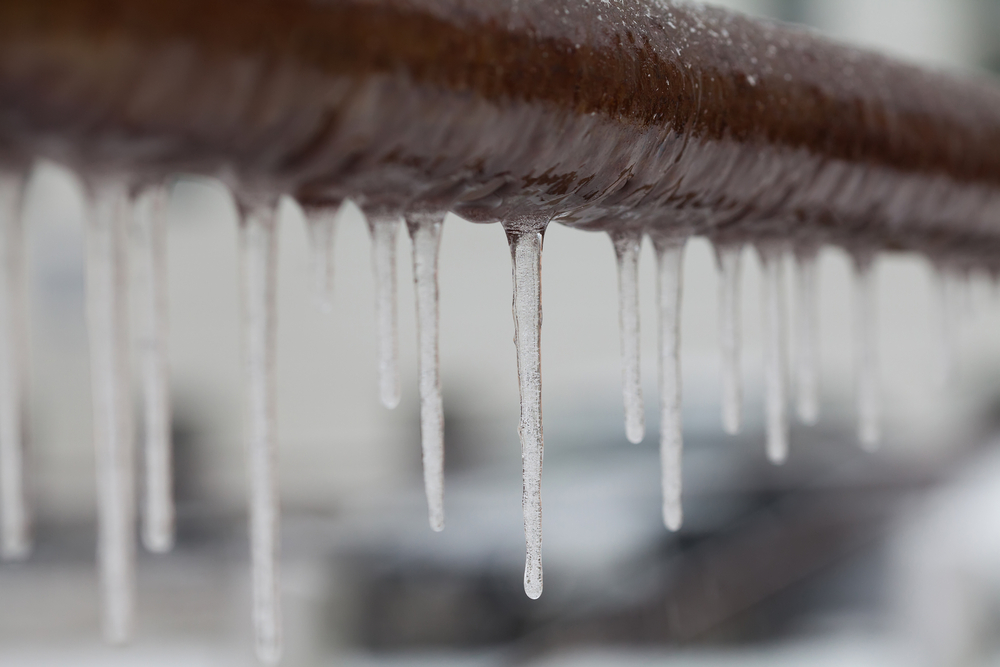
Last winter, we experienced mild weather, with temperatures in January and February well above normal and even averaging above freezing. Still, there were several days when it was frigid enough for pipes to freeze and burst. If those pipes burst, it can lead to expensive property and possession damage as well as mold growth.
With winter just about here, frozen pipes again become a risk. So before the weather turns too nasty, here are some tips on preventing frozen pipes and what to do if they do freeze.
Preventing Frozen Pipes
- Before we forget, don’t forget about the outside. Remove your hoses from outside spigots (you should have already done this as you prepared the outside of your home for winter).
- If you have not done so, close the outdoor water shutoff.
- Speaking of the outside, keep your garage door closed. This is especially true if you have water lines in your garage or a bathroom located above the garage, but even if not, you don’t want frigid air entering your home through the garage.
- Water pipes may be in areas that do not have much protection from the outside elements, such as the attic, basement, or exterior walls. To the extent you can, insulate those areas.
- For other areas or for areas where insulating is not realistic, you can protect the pipes by purchasing insulated pipe sleeves or heat tape.
- Seal any air leaks around or near your pipes.
- We know we advise keeping the temperature down to save on heating bills. But in times of extremely frigid weather, keep the thermostat set at no colder than 55 degrees F.
- During times of extreme weather, open cabinet doors so warm air can circulate around the plumbing. If you don’t know whether there are pipes behind the cabinets, keep the doors open just to be safe.
- During those same times, let a small trickle of water drip from faucets. Yes, that will increase your water bill, but that is better than having a pipe freeze or burst.
If Pipes Do Freeze
If you turn on a faucet and only a trickle comes out, that is a sign you have a frozen pipe. If you observe this, here is what to do:
- Turn on the faucet so water can begin to flow. Running water will help melt the ice.
- Once you have determined where the freeze is, warm the frozen section using an electric heating pad wrapped around the pipe, a hair dryer or a space heater (kept away from flammable materials). You can also wrap the pipes with towels or rags soaked with hot water. Do not use anything with an open flame.
If Pipes Do Burst
- Shut off the main water supply to the house.
- Call a plumber.
Contact Ravinia Plumbing, Sewer, Heating & Electric if Your Pipes Burst
Burst pipes are no joke. If you have a pipe that bursts, call us right away for pipe repair. We’ve been in business since 1928 (that’s 95 years), and we’ve made a name for ourselves as one of the most trusted and reliable plumbing, sewer, heating and air conditioning, and electrical companies in Chicagoland. Contact Ravinia Plumbing today to schedule an appointment.



